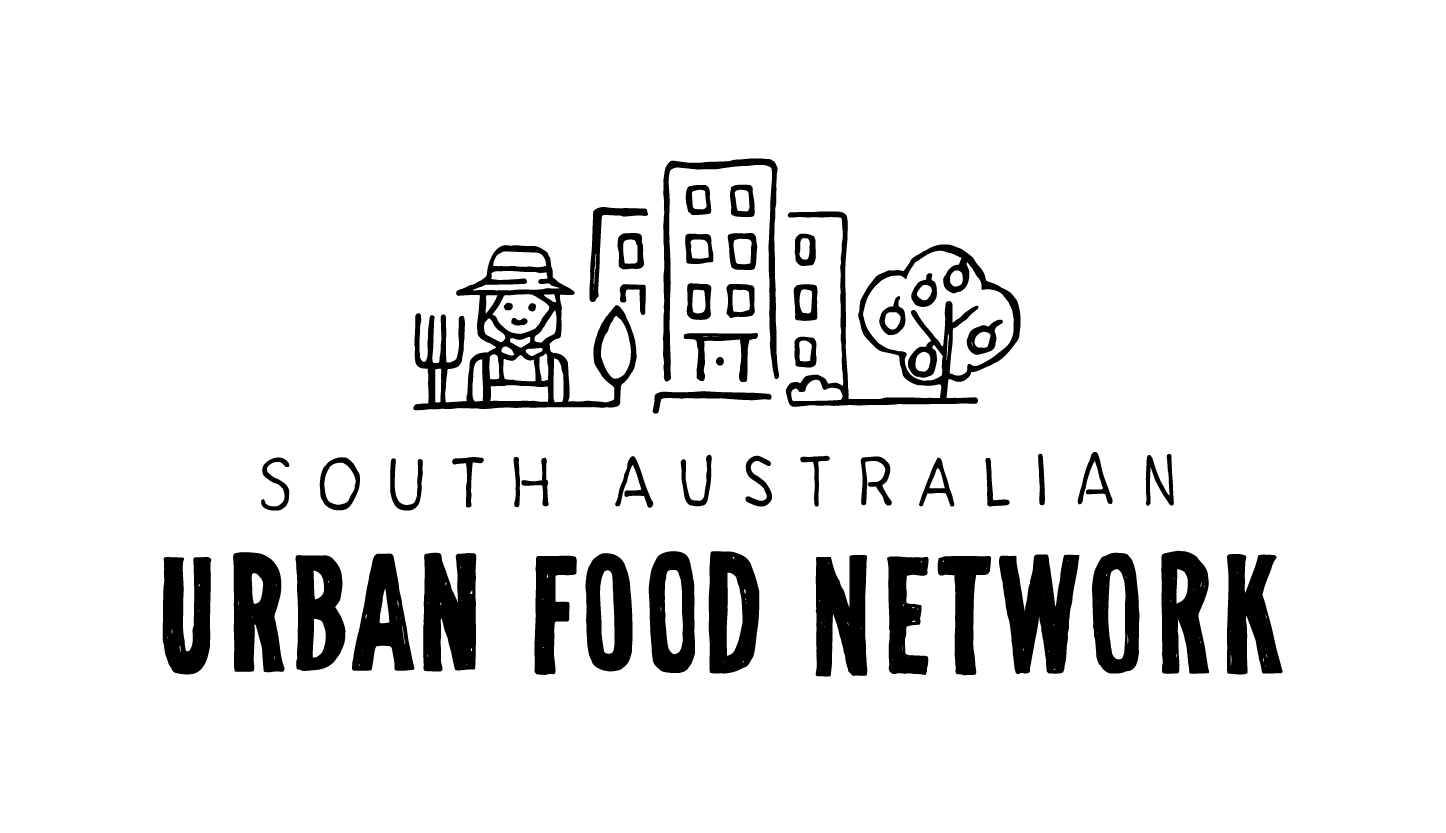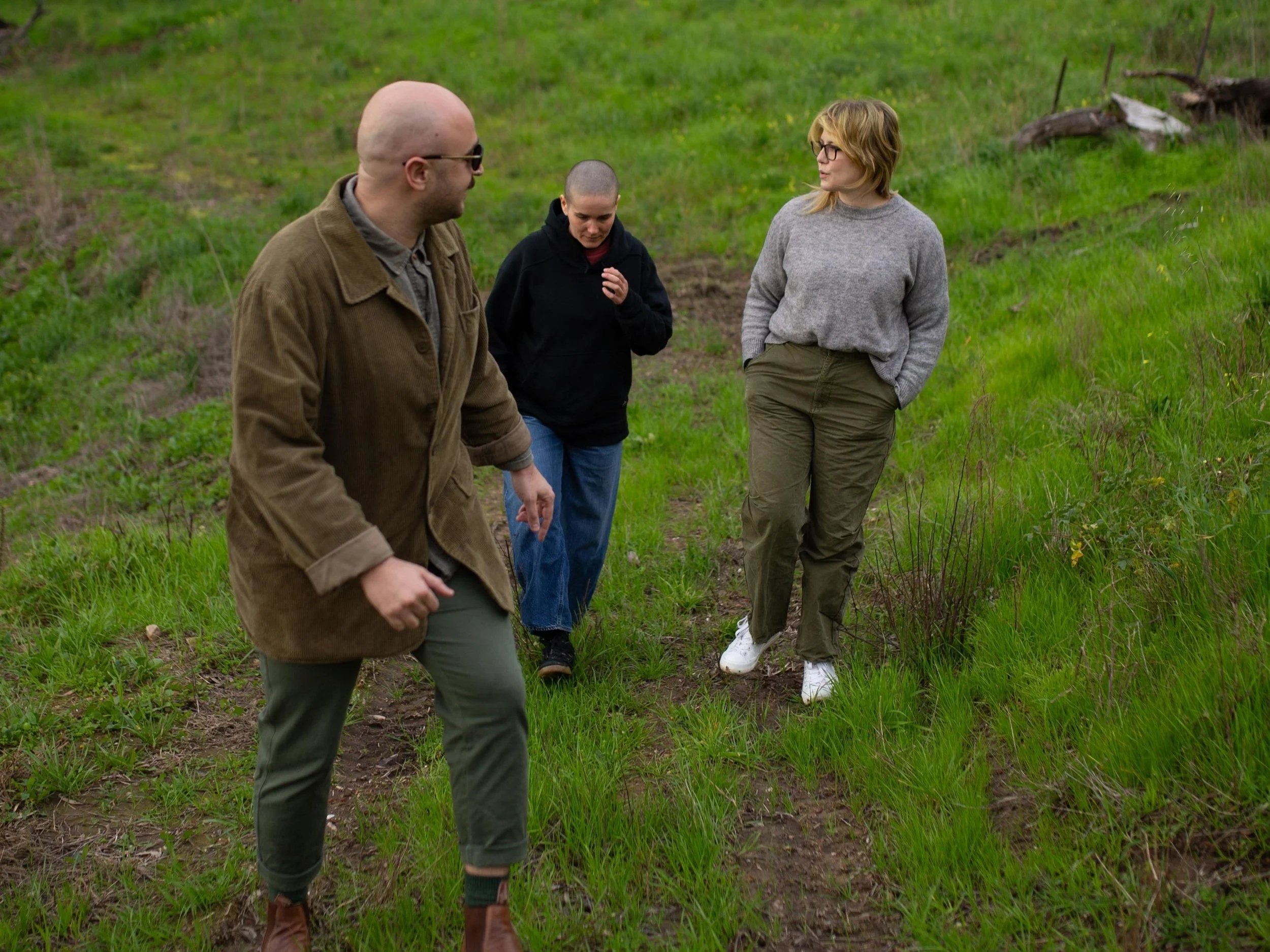The Topsoil Garden Project - Nature, wellbeing and community building in the Adelaide Hills
Jay Marinis, Rose Lacoon Williamson and Lilly Stephens came together in the last
few years to realise a long-incubating vision for wellbeing in the Adelaide Hills,
and food is one of the magic ingredients.
The key stats:
● Year established: 2022
● Location: Norton Summit
● Land: Undetermined as of yet
● Water: Mains and rainwater
● Energy: Mains and solar
● Capital: 50k
● Labour: 100’s of hours volunteered so far, though this is not planned to be a
volunteer-run org!
● Purpose: At Topsoil, our mission is to revolutionise healthcare in a
meaningful and natural way. By embracing nature and fostering a sense of
community, we aim to restore individualised support and empower
members of our community with disabilities and those experiencing mental
ill-health. Grounded in a strengths-based, multi-disciplinary model, we
provide quality, innovative, and person-centred services within a
community-based, natural environment.
What’s the project, in a nutshell?
Rose Laccoon Williamson is a member of the small, multi-talented team driving the Topsoil garden project, which is just one facet of their ambitious vision for a holistic and regenerative community connectedness and wellbeing ecosystem in the Adelaide Hills.
“Horticulture therapy as an approach can have an incredible impact on the balance of physical, mental, spiritual, and social needs of a human.” Rose explains.
This motivated the team’s decision to make nature and human wellbeing so deeply interwoven in this project, which uses funding from sources such as the NDIS to create a space where neurodiverse individuals or people living with disabilities can come to build knowledge, confidence, connections and wellbeing.
“There’ll also be the provision of some one-to-one sessions and programs, and that will be the purpose of the gardens. We honestly have no imperative to grow anything there in a commercial sense. We can take as much time as we need to use that amazing transformative space. Because it really is transformative.”
“We can use food systems and use the seasons as a metaphor and a mechanism to talk about personal wellbeing.”
“Participants will have the chance to get their hands in the soil. To do everything from soil creation, to dealing with scraps from the scenic hotel, to harvesting crops to deal with food insecurity in participants, but also to sell to local businesses around the place.”
“We’re planning on creating a few social enterprises whereby participants can sell products or concepts that they’ve incubated as part of the topsoil garden project.”
“But it’s distinctly different from the community garden model. This garden needs to be owned by our participants so that they can feel empowered and important.”
How did this all get started?
“[Jay and I] had been talking over coffees and wines between one hospitality shift or another about life and mental illness and social isolation. Which is very observable within hospitality, particularly in your early twenties.”
“Those conversations which started as the usual deep chats in the back of the Exeter turned into something that was actually quite motivating. Jay has gone on to become a psychologist, and I’ve come on this career journey that has helped me understand how I can take those coffee chats and actualise them more fully.”
“And Jay is an amazing curator of humans, so they had been having some similar conversations with people and everyone had kind of been adding to this similar collective vision. Suddenly in late 2020, or 2021, we thought ‘but what if we just did it?’”
“From that decision we brought on Lilly, who is a very mindful and regenerative farmer. She’s incredible. And a number of aligned and talented practitioners as well. And then the connective enthusiasm of these crazy nutbags just kept us rolling.”
Any tips for those wanting to start something similar?
“I think it’s really about the networks.” Rose says thoughtfully.
“You can’t create something for the community without the community, and you’d be really surprised about how broad-reaching that can be.”
What’s been the biggest challenge so far?
“The challenge is that we are a finite resource. And when you’re on a mission you kill yourself. I am a crust, man, I am a little piece of toast that you’re talking to right now.” Rose laughs.
“And then the other related challenge was... I got some really wise counsel from my lovely friend Trish Hansen the other day. she gave me this analogy that was two friends are travelling up a mountain to a spiritual conference.”
“One of them breaks their leg, and then the other is faced with the reality of either sitting with their friend or continue up to the summit and achieve their goal. And he chose to sit with his friend, and in doing so he realised that that was his summit.”
“I think what was analogous for was that the way we do things in this work is so important. The rest will come.”
“[I’m always] creating false summits for myself, like ‘oh my god, I have to get the garden built by the end of winter’, or ‘oh my god if I don’t finish this grant response I’ll let everyone down’. Which is absolute nonsense.”
“The real summit that I need to be focused on is the quality with which we bring together these human relationships, the relationship with nature, and the relationship with our community.”
What’s the best part?
“Honestly the community support for this… it made me openly weep every night. It was wild.”
From money donations of young cash-strapped hospitality workers to builders donating their time to get the garden built, the outpouring of support for this project in any form people could give shows just how valuable this project could be.
“We’ve spent the last two years being more isolated and more sad and more disconnected from nature than we probably ever have had to be collectively, so I think it really hit different for people.”
“And I love the disruption of power that’s happening, or that’s intended to happen, at Topsoil by putting our participants at the top of the food system.” Rose adds.
“Because there are some lovely people that eat at the Scenic, and they’re going to be eating food provided by our participants, grown by our participants, in this beautiful way.”
“To me it’s so exciting, because often our participants will have really significant experiences of marginalisation. A lot of NDIS participants report that their only friend is a paid staff member.”
“Disrupting all of that and saying ‘you guys are going to create something amazing because you’re amazing, and serve it to people who are going to love it and be so grateful to you for the amazing stuff you’re doing, and that you have power and place as a significant part of this community’. That excites me. That’s my favourite thing.”
“In the doing of enriching their community we hope that they can backfill some of those self-limiting beliefs and habits of perception. But also the perception that society has of them, and we can come together in a more unified way.”
Why should people support a local food network in South Australia?
“We know, from studies on food security and access to local food systems, that it matters in a variety of social issues later in life.”
“Some are really obvious, some are not. Educational disengagement is one of the ones that I deal with right now that is not obvious.”
“I always find the disadvantage in South Australia so disproportionate to the privilege that we experience. The fact that there are food deserts in the northern suburbs and southern suburbs.”
“When you impact people’s access to food or effect very little change around their access to food, that is the easiest way to disadvantage generations of people, and it’s disgusting. And it’s got to stop.”
“We need to innovate around creating food security. Topsoil is one model that we’d like to demonstrate in this space. How do you take some NDIS money here, a few community assets there, some well-meaning Adelaide hills community members and five absolute crackpots and try and create a local food system and wellbeing system.”
As well as being a tool to strengthen community and food security, Rose sees enormous potential for local food systems in demonstrating how food production and biodiversity can go hand in hand.
“We know that biodiversity can’t be achieved unless it’s en masse. We know that a lot of that needs to happen on farmland, but there are also a lot of ways we can demonstrate that in local food systems and communities.”
Tell us about the future – what’s next?
“Despite my analogy about false summits I’m always looking for them.” Rose laughs.
“We’re hoping to break ground in the second half of this year [2022], and we’ve got applications going into council today… so we’ll see.”
The plan is to get the garden set up and have participants on the ground as soon as possible, and their eyes are already on the Topsoil garden’s potential into the future.
“There is an enormous amount of disused land in the Adelaide hills, because there’s a mix of young professionals and retirees, both of whom can’t necessarily care for that land and are looking for solutions.”
“This plot is not the most physically accessible, which fills me with dread, so very quickly I want to make sure we have an option for our participants with physical disabilities. I want to fully open source this model so that anyone can replicate it.”
“[And then] we really want to establish an allied health hub to help provide a range of holistic wellbeing services to help compliment their participation in the garden. I want to get a cool bus so that we can pick everyone up and so we can paint it.
Rose also mentioned the ways that the Scenic’s annual Topsoil Festival might grow and change alongside the garden as another of the many important, interconnected elements of this vision for a wellbeing ecosystem in the Adelaide Hills. The possibilities for new directions and creative inputs are endless.
“To be honest I just want to spend the next year seeing people happy, and making a mark on the space that we started but they’ll continue.”









